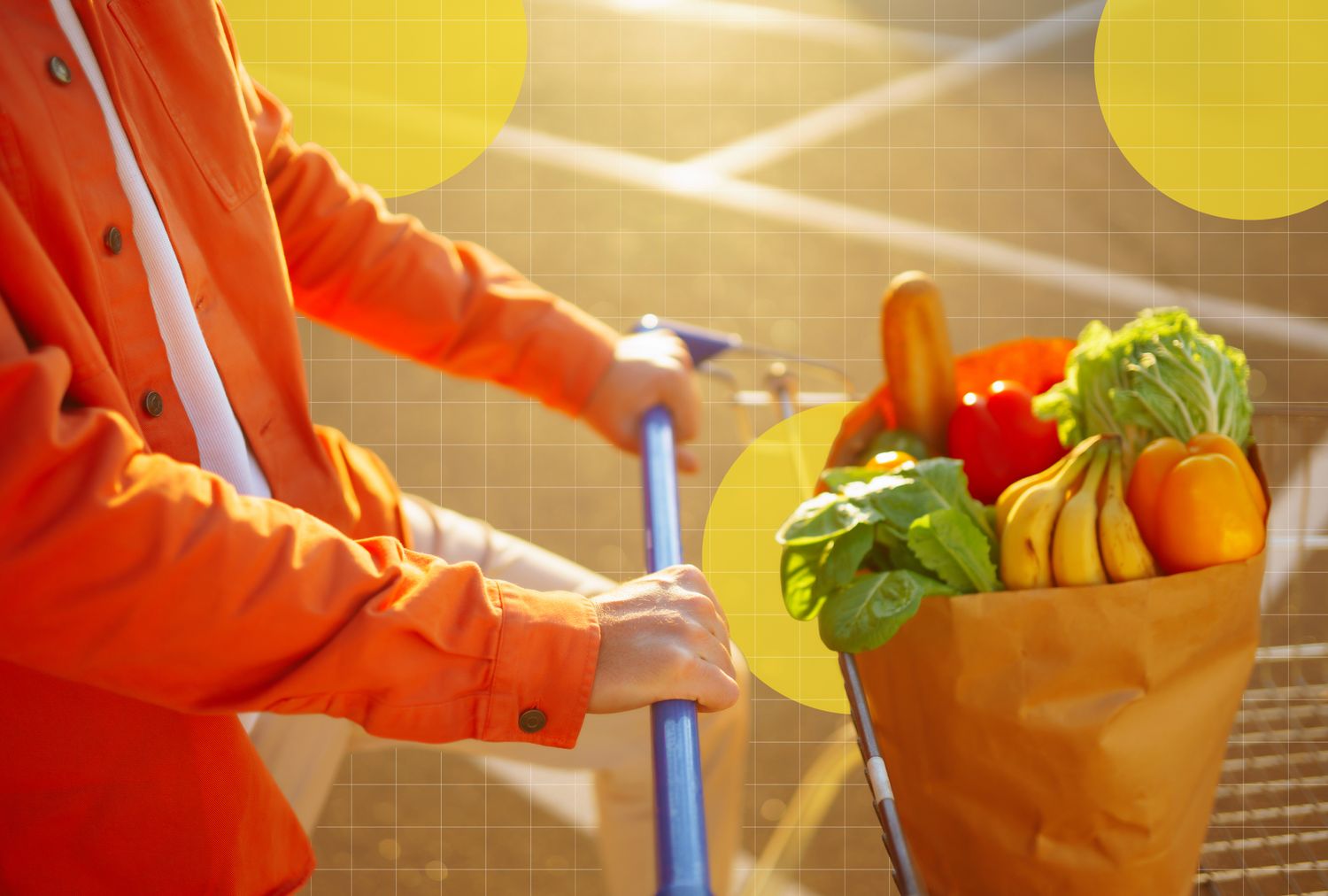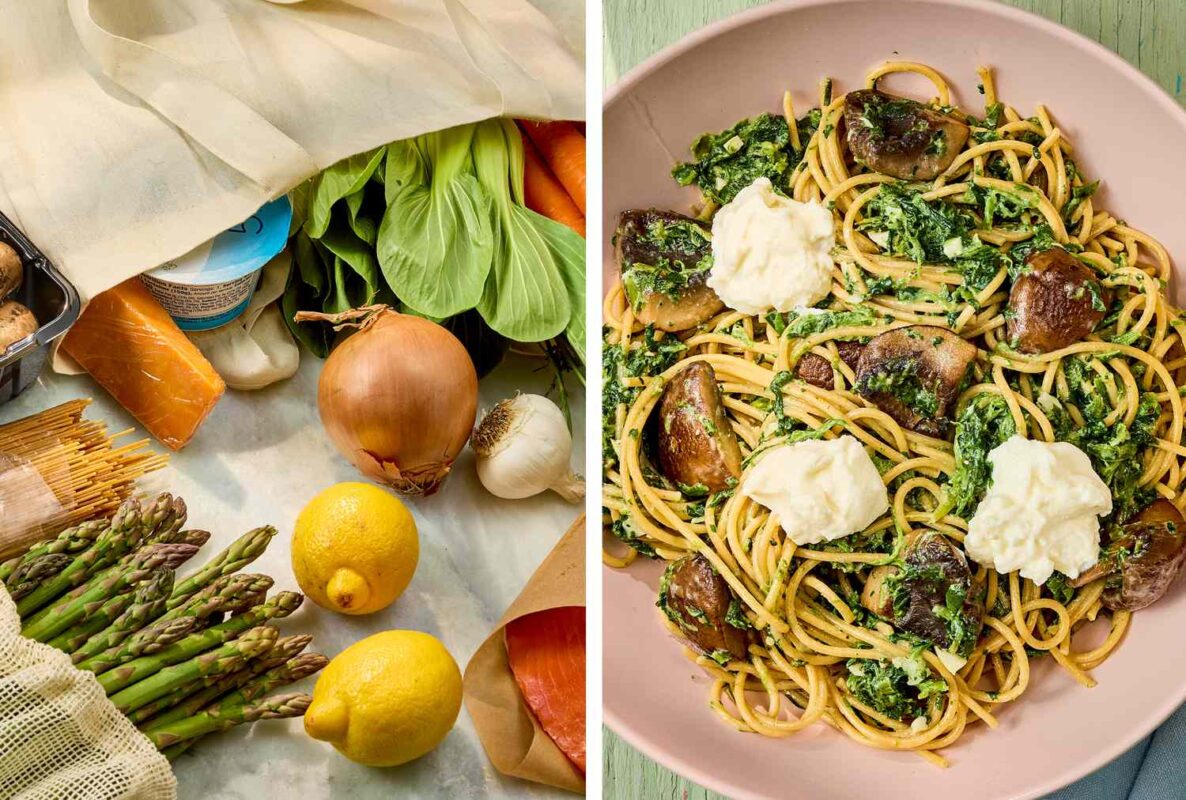Blog
5 Foods to Buy Every Week to Help Reduce Your Stroke Risk

- Eating a Mediterranean-style diet focused on whole foods can reduce your risk of stroke.
- Experts share their top five favorite foods, including salmon, chickpeas and spinach, to keep your stroke risk low.
- Staying active, getting regular checkups and limiting alcohol can also help.
Your brain is arguably your body’s most important organ, serving as the command center for thought, memory, emotion and innumerable everyday functions. For obvious reasons, protecting it from the debilitating effects of stroke is critical.
Fortunately, you can shore up your brain’s vascular defenses with what you put in your shopping cart—and ultimately on your plate. “Eating well plays a supportive role in reducing stroke risk and supporting recovery after a stroke,” says Vanessa King, M.S., RDN. “A heart-healthy, Mediterranean-style eating plan rich in olive oil, whole grains, fruits, vegetables and legumes has been shown to cut stroke risk by 40% for high-risk individuals.” An additional study adds to this, finding that those with the highest-quality diets (as determined by the Alternative Healthy Eating Index) had a 40% lower risk of stroke compared to those with the lowest-quality diets, regardless of other lifestyle factors.
Dietitians share five delicious foods that fall under this dietary umbrella, helping keep your stroke risk low.
1. Salmon
Seafood and stroke reduction go hand in hand. Research shows that eating fish lowers your risk of stroke. This is especially true if the fish is a source of omega-3 fatty acids, like salmon, tuna and mackerel. If you’re looking to boost your seafood intake, salmon is a tasty, high-protein place to start.
“Three ounces of cooked salmon is a great source of vitamins B6 and B12, providing 23% of the Daily Value of B6 and over 100% of the Daily Value of B12,” says King. These B vitamins may lower total blood homocysteine concentrations—a key risk factor for stroke. King suggests enjoying the pink fish as a protein topper for salads like Salad Niçoise or making a simple baked version.
2. Coffee
For stroke prevention, there’s no need to ditch your morning coffee, says Amy Brownstein, M.S., RDN. The reason for java’s beneficial effects in the brain? “Besides its caffeine content, coffee is a significant source of polyphenols like chlorogenic acid, which may contribute to lower blood pressure levels,” shares Brownstein.
As part of your coffee routine, Brownstein recommends limiting sweeteners. Increasing evidence shows that added sugars can contribute to stroke risk. Check out these healthy coffee drinks for inspiration.
3. Spinach
You probably know spinach is packed with nutrients, but did you know those nutrients promote blood flow in your brain? “A half-cup of cooked spinach is a great source of folate and a good source of magnesium,” says King. One study found that high dietary folate intake was linked to a 17% reduction in incidence of stroke. Another study revealed that those with higher magnesium intakes (18.5 milligrams or more per 100 calories a day) had a 40% reduced risk of stroke compared to those on the lower end of magnesium intake (12 mg per 100 calories a day). For reference, on a 2,000-calorie diet, this would equate to 370 mg a day on the higher end and 240 mg on the lower end.
Go green with recipes that serve spinach hot or cold. “It can be cooked in olive oil and topped with pumpkin seeds and raisins in a Spanish style,” suggests King. Or, for a warmer-weather preparation, a strawberry-balsamic spinach salad might hit the spot.
4. Chickpeas
Small-but-mighty chickpeas are another nutrient-dense choice packed with stroke-fighting vitamins. According to King, a cup of these versatile beans adds 10% of the Daily Value of homocysteine-lowering vitamin B6. And since they come conveniently precooked, it’s easy to crack open a can to upgrade nutrition in your meals. “They serve as a fiber-rich protein source for stews, salads, curries and snacks,” says King.
5. Soy Foods
It’s time to put misconceptions about soy foods to rest. Choices like tofu, tempeh and edamame are all top-notch proteins for both your brain and your heart. “Soy proteins lower blood pressure,” says Brownstein. “They’re naturally low in fat, and compounds like phytoestrogens and isoflavones positively influence blood pressure by potentially relaxing blood vessels.”
You don’t have to completely replace meat with soy to enjoy these benefits, either. Brownstein suggests starting with a meatless Monday—replace one meat-based meal with a soy-based food. (These beefless tacos are an easy place to start!)
Other Strategies for Reducing Stroke Risk
Choosing cardiovascular-friendly foods is, of course, only one piece of the stroke prevention puzzle. Reducing your risk involves multiple lifestyle factors. In your efforts to stay stroke-free, try incorporating the following:
- Get active: “Participate in regular physical activity to help maintain a healthy weight and cholesterol and blood pressure levels,” Brownstein advises. The American Heart Association recommends 150 minutes of moderate-intensity aerobic exercise per week.
- Quit smoking. If you’re a smoker, ditching this habit is one of the most effective ways to decrease your risk of stroke.
- Limit your alcohol intake. Alcohol is known for raising both blood pressure and cholesterol. Stick to the recommended intake of two alcoholic drinks or fewer per day for men and one drink or fewer for women.
- Get regular checkups. “Routine blood work and medical evaluations help you stay on top of your health, enabling you to make lifestyle changes before complications arise,” says Brownstein. She recommends regular checks on blood sugar, cholesterol and blood pressure.
High Blood Pressure Meal Plan to Try
7-Day No-Sugar, High-Protein Meal Plan for High Blood Pressure, Created by a Dietitian
Our Expert Take
Filling your grocery cart with stroke-prevention foods doesn’t have to involve anything fancy. Plenty of everyday items can play a role in keeping a healthy blood flow in your brain. Try focusing on nutrient-dense whole foods that are lower in sodium and that provide vitamins and minerals like folic acid, vitamin B12, vitamin B6 and magnesium. Every bite adds up! “Even small shifts in the kitchen can make a big impact on stroke prevention,” says King.












